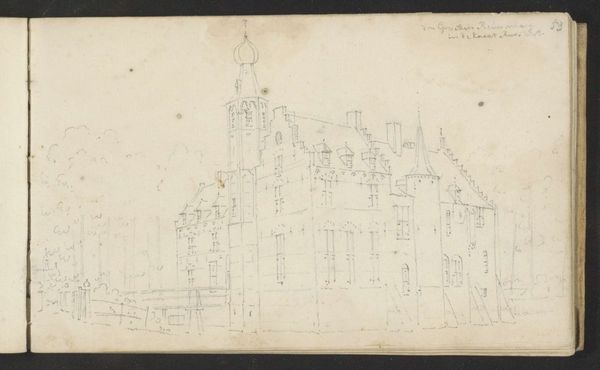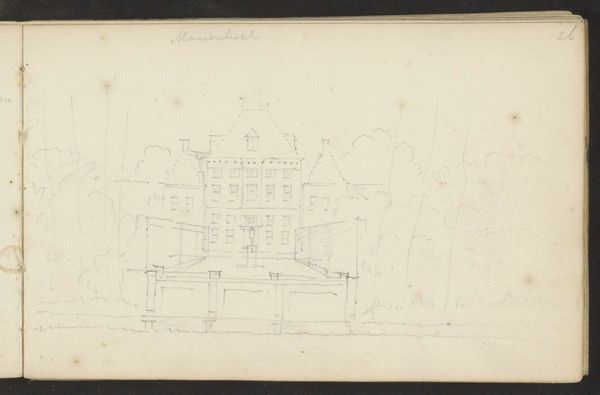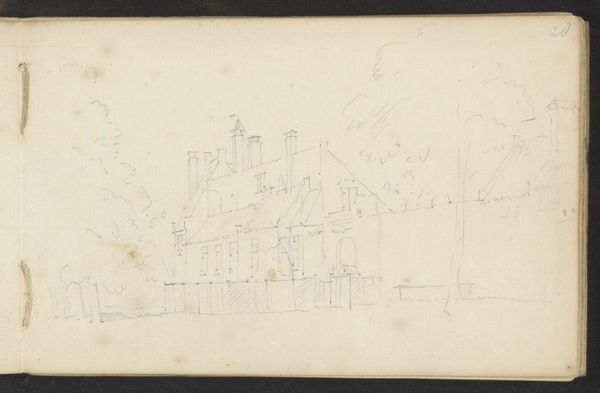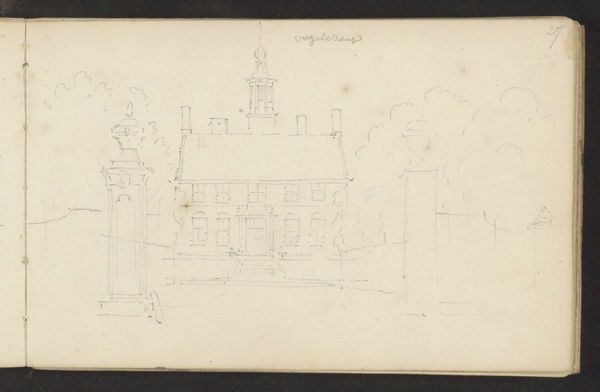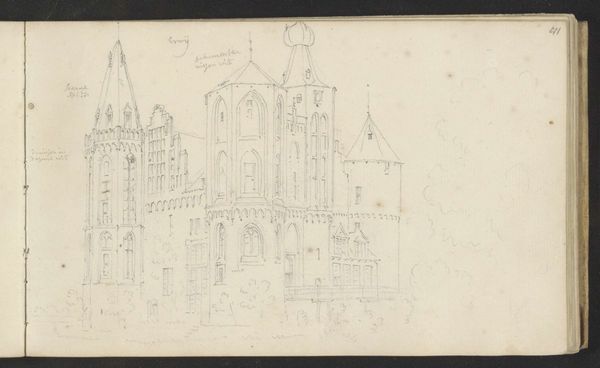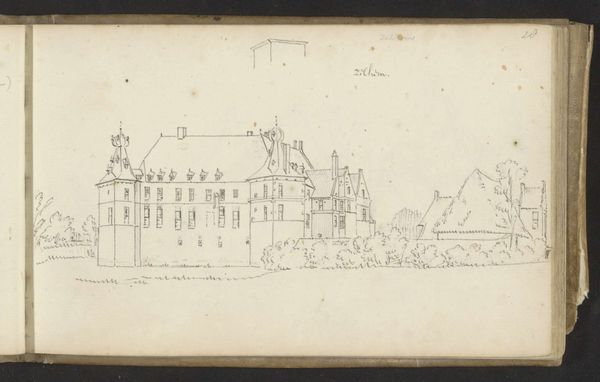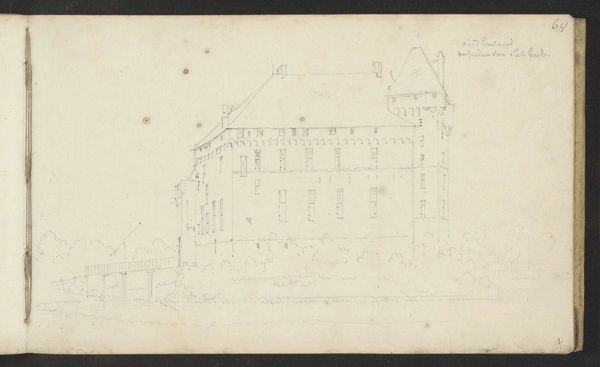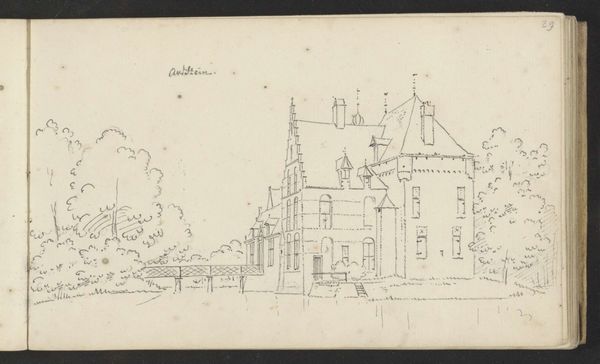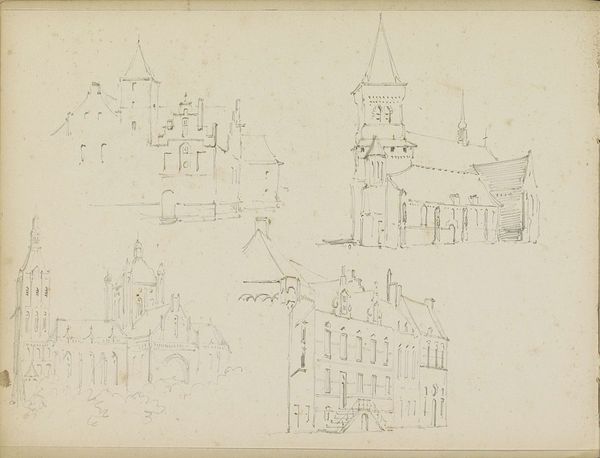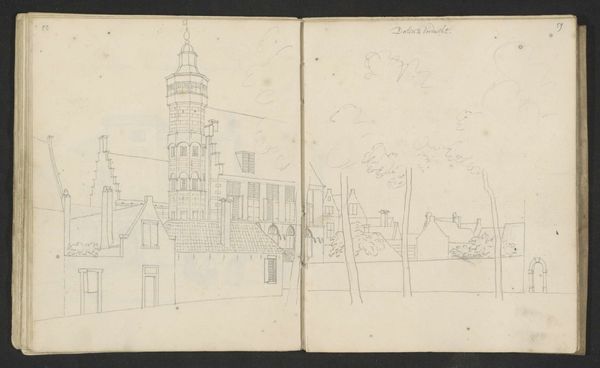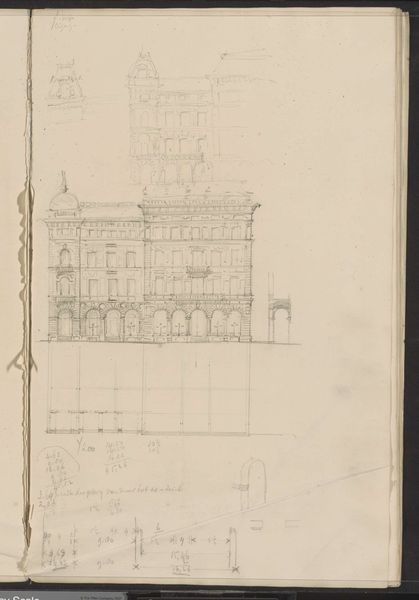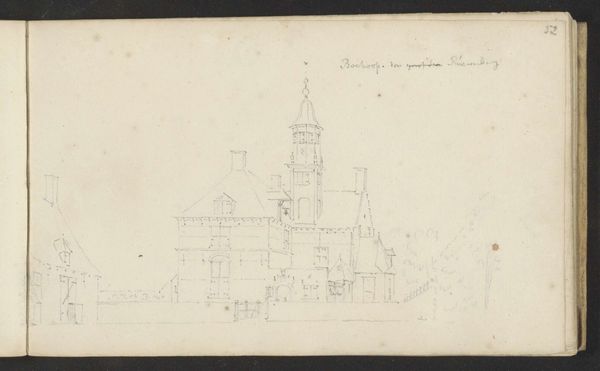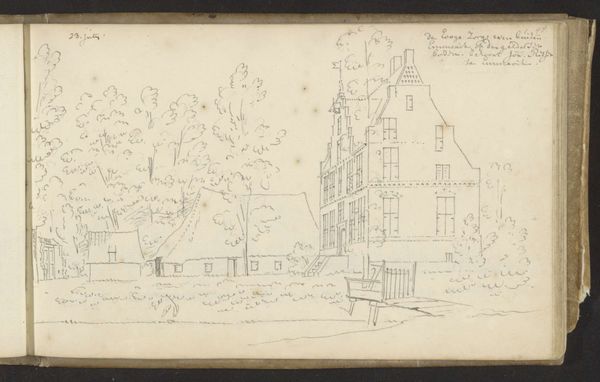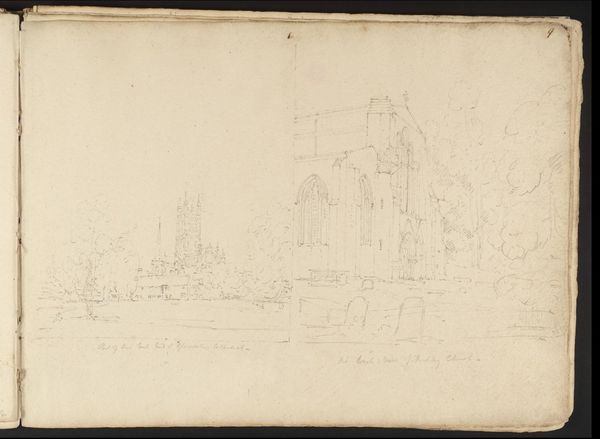
drawing, paper, pencil, architecture
#
drawing
#
aged paper
#
baroque
#
sketch book
#
hand drawn type
#
landscape
#
paper
#
personal sketchbook
#
hand-written
#
hand-drawn typeface
#
pen-ink sketch
#
pencil
#
pen work
#
sketchbook drawing
#
genre-painting
#
sketchbook art
#
architecture
Copyright: Rijks Museum: Open Domain
This understated drawing of Huis Nieuwerkerk in Zeeland was made in the 18th century by Abraham de Haen the second. De Haen’s detailed architectural drawings captured a society deeply entrenched in class divisions, where the opulence of the elite stood in stark contrast to the lives of the working class. During this period, Zeeland was a vital hub for the Dutch East India Company, and this economic engine supported the construction of grand estates like Huis Nieuwerkerk. Yet, such wealth was built on the backs of exploited laborers and the dark legacy of colonialism. De Haen, positioned within this societal framework, offers us a glimpse into the physical spaces that embodied this imbalance of power. Consider how the drawing itself, with its precise lines and focus on structure, mirrors the rigid social structures of the time. It invites us to reflect on the stories of those who lived and labored within its walls, prompting questions about their identities, experiences, and silenced voices. Ultimately, this image serves as a poignant reminder of the complex interplay between architectural beauty and the underlying social realities that shaped its creation and enduring legacy.
Comments
No comments
Be the first to comment and join the conversation on the ultimate creative platform.
